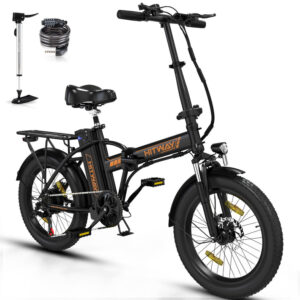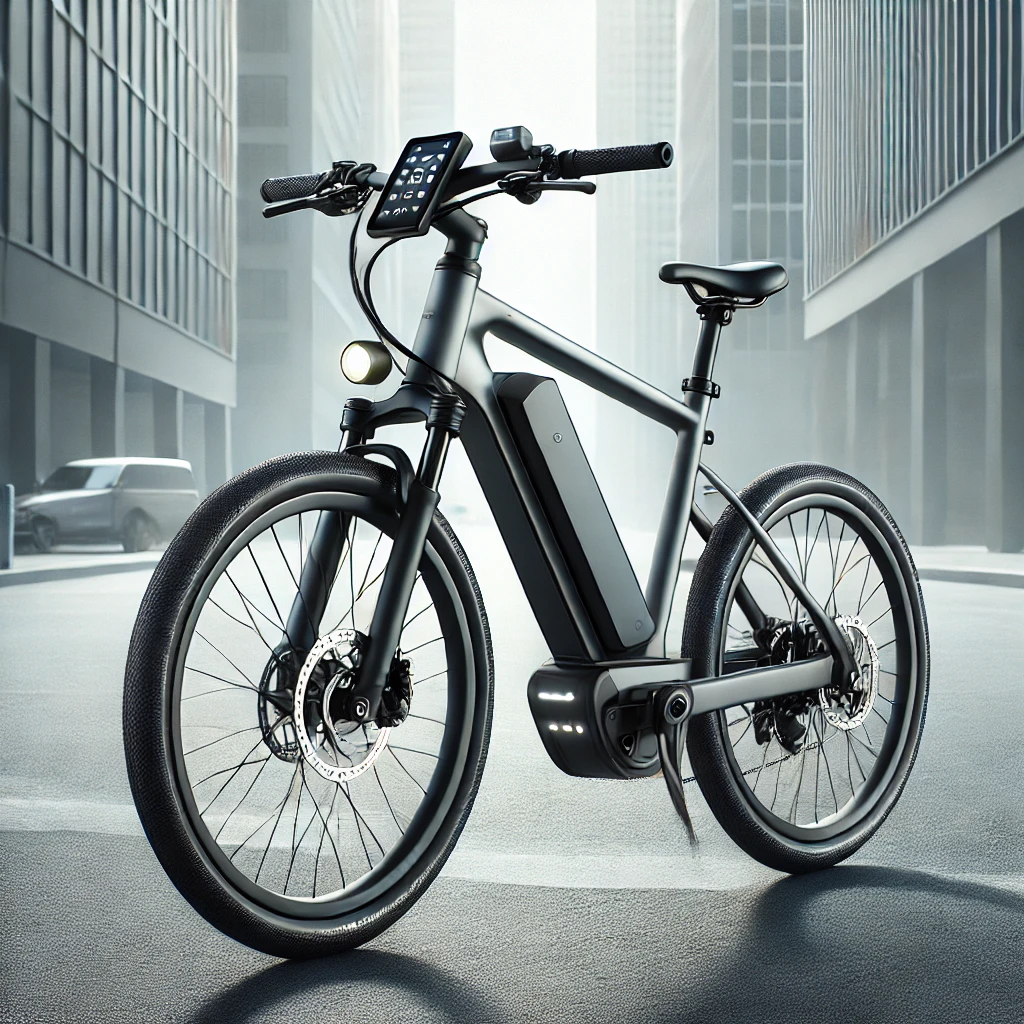Electric bikes, or e-bikes, have quickly become a reliable and versatile solution for modern transportation. Speaking from experience, I’ve seen firsthand how they can make life easier, whether you’re using them to commute to work or for business purposes like deliveries. In Nigeria, where fuel prices are unpredictable and traffic jams are a daily reality, electric bikes provide a much-needed alternative.
As a Nigerian, I understand the challenges we face—rising costs, long commute times, and limited infrastructure. Yet, the potential of electric bikes to address these issues is undeniable. With so many models available offering various battery capacities and ranges, e-bikes can fit into anyone’s lifestyle.
In this article, I’ll share the practical benefits of electric bikes, explore the different types available, and help you decide which model might work best for you or your business.
Why Electric Bikes Work for Nigerians
1. Saving Costs
The cost of running an electric bike is minimal compared to cars or motorcycles. Instead of spending on petrol or diesel, you only need to charge the battery, which is affordable even with fluctuating electricity costs.
For delivery workers, using electric bikes drastically reduces expenses and increases profits. I know many small business owners who’ve embraced e-bikes to cut costs and improve their bottom line.
2. Eco-Friendly and Sustainable
Electric bikes are environmentally friendly. Unlike traditional vehicles, they emit no harmful gases. With Nigeria’s growing air pollution, especially in cities like Lagos and Abuja, e-bikes are a breath of fresh air—literally.
Using electric bikes aligns with global efforts to combat climate change and promotes a cleaner, greener Nigeria. If you’re someone who cares about the environment, this is an excellent step toward reducing your carbon footprint.
3. Convenient for Urban Living
Electric bikes are perfect for navigating crowded streets. Whether you’re a professional trying to avoid long traffic jams or a delivery rider needing to meet tight deadlines, e-bikes can cut through congested roads with ease.
I’ve spoken to delivery personnel who swear by their e-bikes, saying they save hours of travel time every week. For commuters, this means less time spent on the road and more time doing what you love.
Different Types of Electric Bikes

Electric bikes come in various types, each suited to specific needs. Here’s a breakdown of the most popular models and their features:
1. City E-Bikes
• Purpose: Ideal for commuting in urban areas.
• Features: Lightweight frames, smaller wheels, and comfortable seats.
• Battery Life: 30–50 km per charge.
• Examples:
• Folding City E-Bikes: Compact and easy to carry, perfect for short commutes.
• Affordable Brands: GogoCity or Niu.
2. Cargo E-Bikes
• Purpose: Designed for deliveries and carrying heavy loads.
• Features: Larger frames, extra storage space, and higher battery capacity.
• Battery Life: 60–100 km per charge.
• Examples:
• RadWagon Cargo E-Bike: Perfect for delivery companies.
• Urban Arrow Family: Great for carrying goods or passengers.
3. Mountain E-Bikes
• Purpose: Built for off-road adventures and rough terrains.
• Features: Durable frames, thick tires, and powerful motors.
• Battery Life: 40–80 km per charge.
• Examples:
• Trek Powerfly: Excellent for rugged Nigerian roads.
• Ancheer Electric Mountain Bike: Affordable yet durable.
4. Hybrid E-Bikes
• Purpose: A mix of city and mountain bikes for versatile use.
• Features: Comfortable design, moderate speed, and range.
• Battery Life: 50–70 km per charge.
• Examples:
• Giant Explore E+: Reliable for commuting and light off-road use.
• Himiway Cruiser: Long-lasting battery and powerful motor.
How Battery Life Works
The battery is a critical component of electric bikes, determining how far you can travel on a single charge. When choosing an e-bike, you’ll need to consider its battery capacity, which is measured in watt-hours (Wh). Here’s a breakdown:
• Low-Capacity Batteries (250–500 Wh): Suitable for short commutes (20–50 km).
• Medium-Capacity Batteries (500–750 Wh): Ideal for daily commuting and deliveries (50–100 km).
• High-Capacity Batteries (750 Wh and above): Great for heavy-duty tasks and long-distance rides (100+ km).
Most modern e-bikes also include fast-charging options, allowing you to recharge within 3–5 hours.
Models of Electric Bikes Available in Nigeria
Below are some e-bike models available in Nigeria and their specifications:
• Phoenix Electric Bicycle
• Range: 40–60 km.
• Features: Lightweight and affordable, good for short commutes.
• Ado A20F XE
• Range: 80–100 km.
• Features: Foldable, with fat tires for rugged terrain.
• Fiido D4S Electric Bike
• Range: 60–80 km.
• Features: Lightweight and fast-charging battery, ideal for urban areas.
• ENGWE EP-2 Pro
• Range: 70–90 km.
• Features: High torque motor, perfect for deliveries.
• RadPower RadWagon 4
• Range: 50–80 km.
• Features: Large cargo capacity, designed for delivery businesses.
Benefits for Delivery Companies
If you run a delivery business, investing in electric bikes is a smart choice. Here’s why:
• Cost Savings: Reduce fuel and maintenance expenses.
• Time Efficiency: Navigate traffic quickly, ensuring timely deliveries.
• Eco-Friendly Image: Attract customers who value sustainability.
Many international delivery companies, like Uber Eats and Amazon, use e-bikes for efficiency and sustainability. Nigerian businesses can benefit similarly by switching to electric bikes.
Challenges and Solutions
Despite their advantages, electric bikes face some challenges in Nigeria:
• Charging Infrastructure: With limited charging stations, you’ll need to rely on home or office charging. Solar chargers are also a viable solution.
• Initial Cost: While e-bikes may seem expensive upfront, the long-term savings on fuel and maintenance make them worthwhile. Consider financing options or leasing plans.
• Awareness: Many Nigerians are unfamiliar with e-bikes. Raising awareness through demonstrations and marketing campaigns can help.
Why Now is the Time to Switch
As a Nigerian, I believe adopting electric bikes isn’t just about convenience—it’s about embracing the future. With various models tailored to different needs, everyone can find an e-bike that works for them. Whether for personal use or business, e-bikes offer an affordable, sustainable, and practical solution.
Investing in an electric bike is more than just a purchase; it’s a commitment to saving costs, protecting the environment, and making life easier. If you’ve been considering one, now is the perfect time to join the movement and ride toward a greener future.





